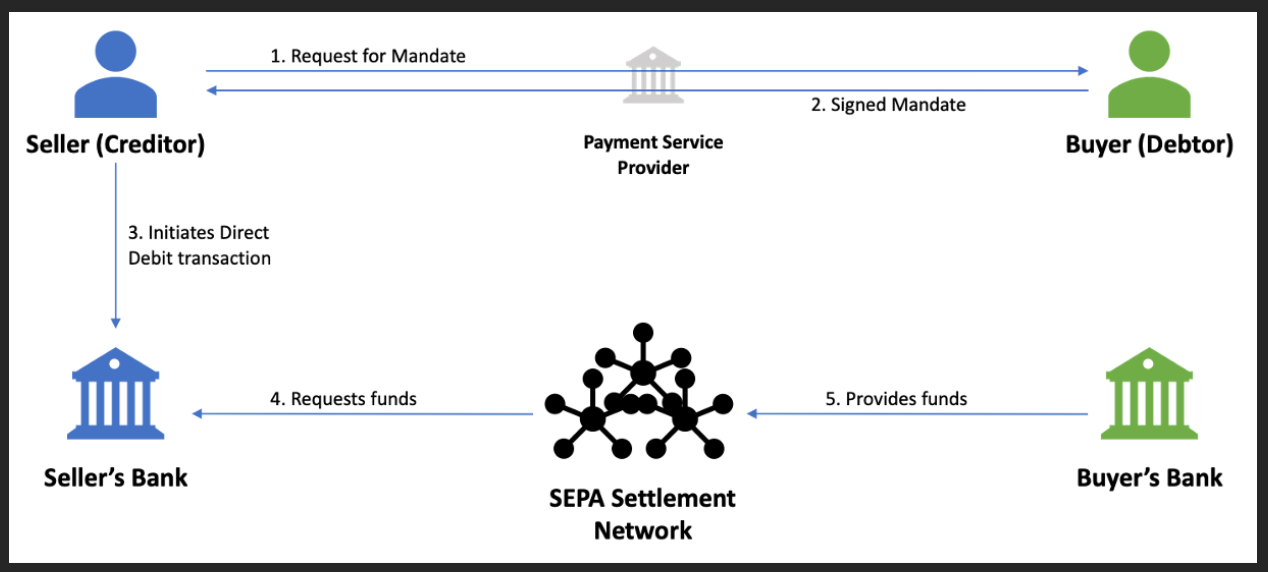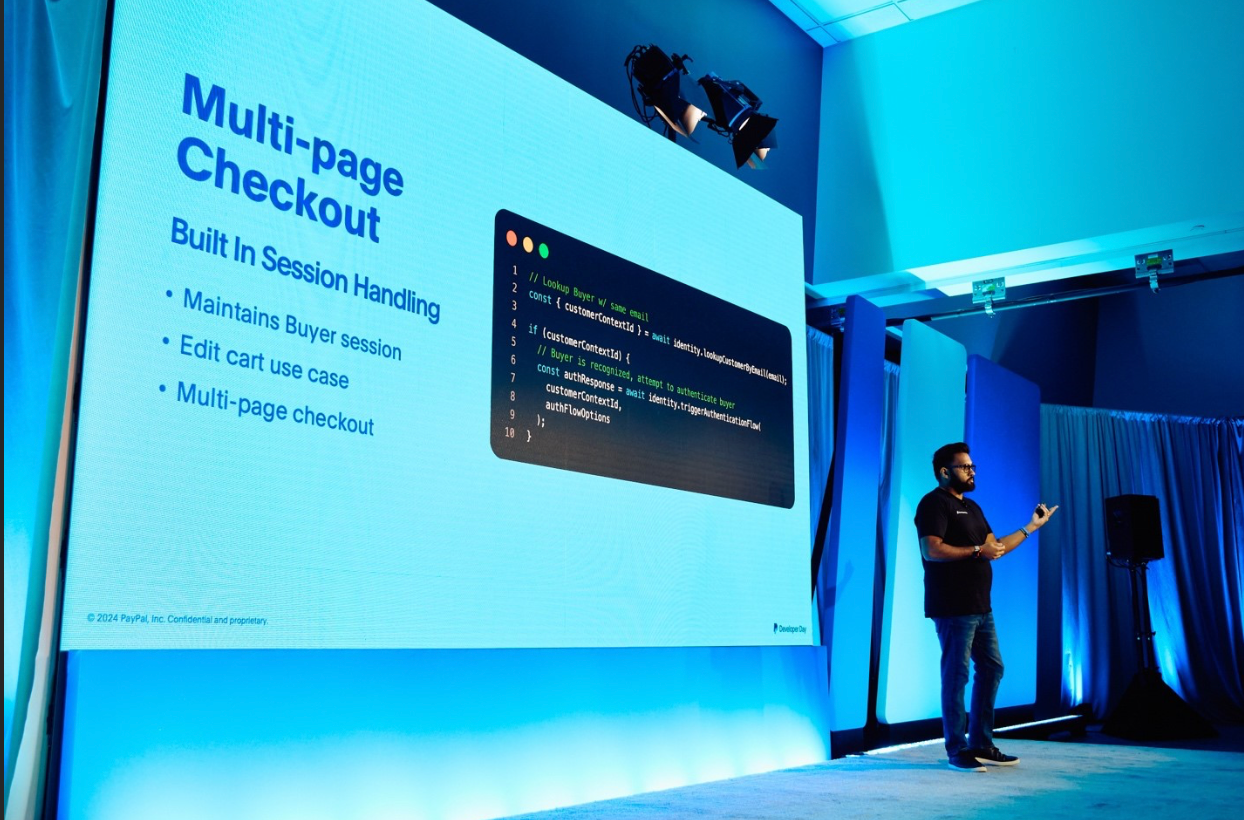The Future of Commerce: PayPal’s Agentic AI
Jun 30, 2025
4 min read

Commerce is at a turning point. We are entering an era of agentic commerce and agentic AI, one where intelligent agents, rather than developers or merchants, take on the heavy lifting of creating seamless experiences. The possibilities are enormous, but understanding the transformation requires grasping the key difference between non-agentic and agentic approaches.
A Tale of Two Worlds: Non-Agentic vs. Agentic
Non-Agentic systems, which have dominated the past, force developers to manually orchestrate APIs, build rigid workflows, and manage failure scenarios at every turn. These systems are labor-intensive and prone to brittleness, breaking apart under pressure or when unexpected scenarios arise.
Agentic systems, by contrast, delegate tasks to intelligent agents. Agents exhibit adaptability and resilience, seamlessly navigating complex workflows without extensive intervention. In short, they liberate both developers and merchants to focus on innovation instead of troubleshooting.
PayPal's agentic offerings redefine what commerce can look like, building on the foundations of modern AI and unlocking the full potential of the MCP (Model Context Protocol).
From Complexity to Simplicity: How MCP Redefines Integration
Before MCP, developers faced significant hurdles when trying to connect a large language model (LLM) to essential services like databases, order management systems, and product catalogs. The integration process was arduous, requiring intricate layers of logic to translate natural language into actionable workflows.
MCP revolutionizes this process. With PayPal's MCP-powered agentic APIs, natural language becomes a launch pad for automation, unlocking direct connections to core services. Instead of battling constraints, developers can now delegate tasks to the MCP's intelligent agent for seamless execution.
An Example: Invoicing Made Effortless
Let's take the invoicing process,a routine yet critical commerce workflow.
Before the advent of agentic commerce, even a simple invoicing flow required developers to manually orchestrate multiple actions:
- Hit the invoicing
- API Validate payment methods
- Manage follow-ups and messaging
- Handle fallbacks Log errors and retries
With PayPal’s agentic solutions, this complexity dissolves. Developers now define one structured intent, and the agent takes care of the rest. From validation to error handling, it’s all automated, robust, and reliable.
Transforming the World for Developers
- Robustness: Intelligent agents excel at handling unpredictability, ensuring workflows stay resilient under dynamic conditions.
- Observability: Developers gain unparalleled visibility into transactions, enabling faster troubleshooting and optimization.
- Adaptability: Agents dynamically adjust workflows to match evolving business needs or customer demands.
- Dev-forward design: PayPal has built its agentic tools with developers in mind, simplifying integration and delivering intuitive experiences.
The result? Developers spend less time fighting complexity and more time creating value. It's a win for creativity and efficiency.
Revolutionizing Commerce for Merchants
- Lesser Time to Market: Intelligent agents deliver speed and efficiency, helping merchants launch new workflows faster than ever before.
- Personalization: Adaptable agents make personalized commerce effortless, providing experiences tailored to customers at scale.
- Reduced Overhead: By automating repetitive tasks, agentic commerce lowers costs and streamlines operations.
- Improved Conversions: Fewer friction points and better targeting drive higher conversion rates, boosting revenue growth.
Agentic commerce empowers merchants to transition from reactive commerce to proactive innovation. It’s an accelerant for business success.
PayPal: Driving Commerce into the Future
The foundation of PayPal’s agentic approach includes:
- AI Tools: Advanced integrations with top MCP systems and cutting-edge AI technologies.
- Partners: Strategic collaborations with Google, Amazon, Microsoft, and more to enhance connectivity and functionality.
- Data and Scale: PayPal’s massive two-sided network provides unmatched breadth, depth, and contextual insights, ensuring agents are powered by truly robust infrastructure.
Agentic offerings are not just about convenience; they’re about transforming commerce into an intuitive, adaptive, and scalable framework, one that serves developers, merchants, and consumers alike.
The Road Ahead
With agentic commerce, PayPal isn’t just introducing a new category of tools; it's revolutionizing how commerce itself works. Developers are empowered, merchants are enabled, and customers enjoy low frictionless experiences, not through manual effort but through intelligent orchestration.
The shift to agentic systems places PayPal at the heart of commerce’s next great evolution. By aligning AI tools, partnering with industry leaders, and leveraging an unparalleled network, we are building a system that adapts to change, scales effortlessly, and fuels creativity.
For those at the cutting edge of commerce innovation, embracing agentic offerings is not just an option; it’s an imperative. PayPal continues to lead the way, helping businesses go from idea to commerce fast.
Ready to revolutionize your commerce strategy? Explore PayPal's agentic offerings today and redefine your future.
Recommended

Developer Day for Fastlane by PayPal: A Masterclass of Innovation
5 min read

Pay by Bank for E-Commerce | Using Bank Accounts to Make Purchases with SMBs [SEPA]
5 min read

PayPal Dev Days 2025: Building Smarter Commerce
5 min read